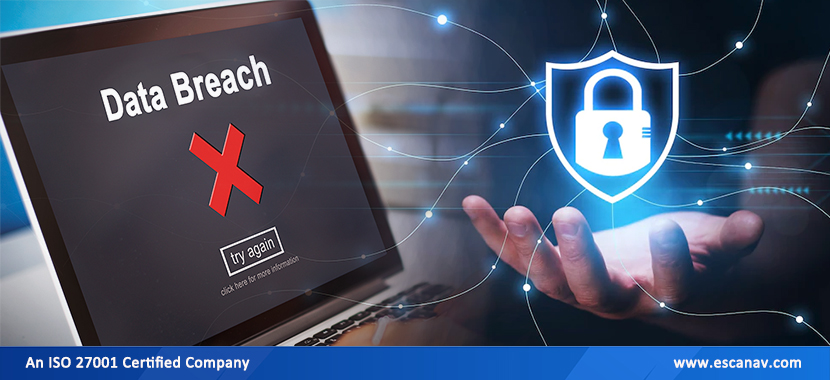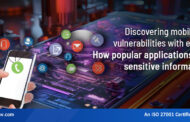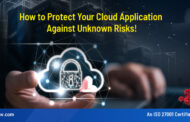Learn how to prevent identity theft and other online crimes after a data breach if you have been affected.
Avoid having your data exploited against you.
Every day, there are data breaches. No matter how good your personal online security is, attackers may be able to steal your personal information from an online service you use.
While some breaches only involve passwords, criminals often find ways to steal bank card information, social security numbers, and other crucial pieces of personal information. Online criminals can use these compromises and leaks to fuel phishing attacks, fraud, and identity theft using your private information.
Furthermore, eScan Labs notes that a data breach puts more than just your information at risk, as your personal details may be used by criminals to commit further online crimes.
There have been a number of cryptocurrency scams, for example, that were promoted through a stolen Youtube account or Twitter account.
Just about everyone using the internet will eventually receive a data breach alert, so you shouldn’t feel singled out if your details are compromised. The following post will give you the five steps you need to take as soon as you get one, so your data won’t be misused.
1. Change that password—and any similar password
After a security breach, the websites of the affected services or companies will often be overloaded with anxious individuals seeking to verify their data. The security team of a breached company may also prevent you from accessing your account while they assess the damage.
Within a few days, though, you’ll probably be able to access the breached service again. Then you should log in and change your password to something longer, and more unique.
Any service that has been compromised needs to have its password changed, regardless of whether you were informed of the breach. Likewise, if you have used the same password or any variations of it for another service, you should change those passwords as well.
You should also take note that password tricks, such as adding a number to a password or slightly varying its ending, do not add any additional security to your recycled passwords. Even if your password is breached, there are steps you can take to ensure that your account remains secure. The most effective way to achieve this is to turn on multi-factor authentication (MFA) in this account and every other account that supports it, according to eScan Labs.
A multi-factor authentication adds an extra layer of security to your accounts, however using a more secure method, such as an authenticator app, is highly recommended.
2. Check your cards
If you receive a breach alert, you should immediately delete any stored bank or credit card information.
In general, online services should avoid storing credit card information. It is a good time to remove any stored financial account information from any of your online services, unless it is absolutely necessary.
It is possible for even the most careful companies to be breached. Any eventual breach should not include your cards.
3. Monitor and cancel
If your bank or credit card details have been leaked, you need to act immediately. Call your bank and cancel your credit card.
This is a huge inconvenience, but necessary, especially if you have automatic payments set up with this card, or do not have an alternative card. A new card will need to be ordered, which can take days or even weeks. However, this is exactly why you should never save your credit cards online.
It is important to monitor any transactions on a card connected to a breached service, whether or not you were informed of the breach. It is important that you check for suspicious activity on a weekly basis, and you should contact your card provider if you suspect that the card is being misused.
4. Consider temporary credit cards (US only)
Services such as privacy.com let you to generate a one-of-a-kind, limited-time credit card number. These temporary cards decrease the possibility of credit card fraud. Unfortunately, similar services do not appear to be offered outside of the United States.
Temporary credit cards demand additional work. However, they are worthwhile because they reduce the harm that can result from a service being compromised. This tactic is similar to using different passwords for every service; the uniqueness prevents a cascade of breaches that might affect every aspect of your digital life.
5. Use a password manager
Before your data is compromised is the ideal moment to start using a password manager. Right now is the second-best time.
In addition to being the best thing most individuals can do to increase their online security, using a password manager is also considerably simpler than most other ways of keeping and accessing safe data.
Using secure, unique passwords for all of your accounts is simple using a password manager. Your chances of a data breach will be significantly reduced by just utilising this password manager that many cyber security experts recommend and by refusing to keep your credit card numbers with any online services.
Especially if you generally do a good job of keeping an eye on your online identity.
eScan internet security protects your passwords and online identity.
Criminals can access your accounts and steal your identity if their passcodes and private information are compromised. It costs money and hurts to recover from ID theft. You can save money and time by avoiding identity theft.
You can prevent identity theft with the help of the eScan internet security solution. Your personal information is more harder to steal if you use a password manager, data breach monitoring software, antivirus software that filters phishing websites, and a VPN. No credit card is necessary to try eScan Internet Security for free for 30 days.







